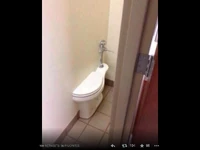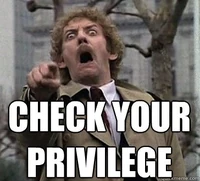Frankly, I didn’t expect to have to make a how-to guide on editing when think of topics to cover in my "So You Want to _____" series, but due to a recent influx of edits that are bordering on pointsgaming, we really have no choice here. This guide will be a basic walkthrough of do’s and don’t's in editing, it’ll give a few examples of common errors to look out for, and it’ll list a few examples that are grounds for a ban from editing (mainly bad faith edits and vandalism).

Before we begin though, I would like to say this. We need editors on the wiki as there are a number of stories that could use corrections. This isn’t meant to discourage editors or give people a reason not to make edits, this is to provide them with a frame for how to proceed in editing. Hopefully this little guide will clear up some issues while editing some of the great stories we have on this site. No one is perfect, we all make mistakes from time to time and having a group of editors looking to improve or point out issues are a great help to becoming a better writer.
Do:[]
- Correct grammatical errors. These are typically the most common issues found in stories that editors should be on the lookout for. Do they properly use it’s (it is) and its (possessive)? What about you're (you are) and your (possessive)? How about their (possessive), they’re (they are), and there (indicatory)? Do they have any homophone (witch/which, hear/here, our/are, etc.) or malapropism issues?

Thank God that little cherubic angel is there to lighten the mood...
- Correct capitalization/spelling/punctuation issues. Are proper nouns correctly capitalized? A proper noun is a specific location (Like the Sedlec Ossuary for example), a name (“ Jesus Christ is that a chandelier made of bones?!”), brand name/title (“No amount of washing with Irish Spring soap will cleanse that creepy feeling of seeing decorations made out of human bones.”), etc. Also you should be on the lookout for typos and punctuation issues that the author may have missed when writing their stories.
- Focus on the entire story if possible. This means that it is better to look over the entire story rather than edit it one paragraph at a time as you can correct widespread issues and make spelling/names uniform if there is variation. This doesn’t mean we’re going to drop the hammer on you for missing something in a story and having to make a quick edit following it. It is just better to make multiple corrections all during the same edit to prevent conflicting edits that may cancel/contradict both users’ changes. Here’s a pro tip: before publishing an edit to a story, always select (Control+A) and copy (Control+C) the section just in case there are edits that cancel yours. After reviewing the conflicting edits and seeing if they’re correct, you can make changes accordingly.
Now we don’t expect you to be a database of proper grammar, spelling, punctuation, capitalization, wording, etc. that is never wrong. This is why we have the style guide for easy reference. It points out common issues and gives pretty helpful guidelines for editing.
Don’t:[]
- Alter wording. Really the only time you should be altering the wording of a story is if you are correcting an instance of incorrect phrasing or errors. For example: “The boy scratched the ears behind the dog.” to “The boy scratched the dog behind the ears.”. Or “The boy walked the the dog.” to “The boy walked the dog.” Sometimes it’s easier for the reader to pick up on these as the author may look-over them while proof-reading their story. Any other changes to the wording of a story is a problem. The author who posted the story that is being edited likely had a reason why they used that specific word and might question why the editor found it necessary to change the word "gargantuan" to "ginormous".
- Change storylines. This is never acceptable. Changing the story in any way will typically lead to the edit being reverted and the user being warned. Further infractions will result in a two week ban for vandalizing. If you feel that there is something wrong with the story in the storyline that should be revised, you can always message the author or comment on the story pointing out what you feel needs changing and leave it up to them on whether they want to take your advice into consideration.
- Change region-specific spelling. American English and British English spelling are quite different. Both forms are correct/accepted here so editors shouldn’t be changing the spelling to their counterparts unless you are making it uniform to the rest of their story. A few common variants between the two forms of spelling you may come across are: defense/defence, color/colour, and traveling/travelling. Making these edits and switching them could result in an editing tug-of-war with both sides changing the spelling to something that is correct/accepted on the site.
- Make multiple edits to boost your editing count. This is considered pointsgaming and is frowned upon because generally each edit/comment/forum post has to be revised by an admin to make sure it is correct. Having to review five edits on the same story all within the space of a few minutes is a pain and generally causes editing conflicts when someone goes to correct issues the original editor overlooked/saved for later. This is especially true when the edits are minor and seem to be posted each time a correction is made.
The Wide World of Ellipses[]
Let’s start with what ellipses are. Ellipses have traditionally been used in quotes when omitting words from a quote. This is typically to make quotes easier to manage, but it can be used for fun too. For example Kanye West’s lyrics, “I was “In Too Deep” like Mekhi Phife" can be changed to “I was in … Mekhi Phife.” ~ Kanye West (“I Don’t Like”.) Sadly enough, Mikhi Phife wasn’t even in that movie so there are a lot of things wrong with that quote.
Recently though, ellipses have taken on other uses in writing. They have been used in literature to indicate pauses in dialogue. Some authors have even taken to adding ellipses into narratives to indicate a dramatic pause in the story itself. Ellipses now have a wider-range of applications than they once did. So why are we talking about them in a guide about editing?

Punctuation-based racism: Not even once....
This is a pretty common edit we’ve been seeing lately. Here’s the thing about ellipses, they’re generally a stylistic choice. Some use three spaced periods (. . .), others use three periods without any spacing (…), and a few even use four periods in their ellipses when the ellipsis denotes the end of a sentence that is meant to convey a pause. The people who use four periods just happen to be freaks and they should be judged for their poor life choices.
All jokes aside, there are multiple ways to use ellipses and all the styles listed above are considered correct. Unless you are making the ellipses uniform in a story or shortening an excessive long ellipsis down to three to four periods from five+ periods, it's generally best to leave it be. Much like region-specific spelling, methods of using and writing ellipses is pretty varied.
While on the topic of cultural misunderstandings...[]
Mikemacdee brings up a good and often overlooked point that I should address. Many cultures and regions have colloquialisms, accents, and ways of saying things that are common to them/natural in dialogue. An example of this would be an American from the South saying lines like: "y'all", "ya'hear?", and other abbreviated lines. Generally these should be left alone unless you are adding the apostrophe to denote a missing letter as is the case for words like "'round", "runnin'", etc. If you feel that the drawl or the sayings are weighing down the story or making it difficult to understand (as in someone from the Campo speaking only in vowels being written phonetically), you can mention it in the comments or message the author directly explaining your concerns.
A good rule of thumb is to read dialogue as if it were a normal conversation. People have a tendency to drop words in natural conversation and altering that may make the story feel less natural. Additionally a conversation between two people speaking grammatically perfect English in a chat room would really ruin the realism as very few spend time on perfectly wording and proof-reading their messages. That being said, this really shouldn't be used an an excuse for incorrect writing in excess. Errors should always be done for effect rather than because the author is looking to not proof-read their work.
Conclusion[]
Let’s wrap this up with a question, why is all this important? There are two reasons for that. The first is to improve the overall quality to stories and edits on the site. The second is to give editors an opportunity to hone their revision skills and learn how to properly edit.
I know how it is to make stupid mistakes, I’ve made more than my fair share. This isn’t to bust you or hassle you for contributing. We'll generally give you advice if you're making improper edits so you can improve. This is to make sure that everyone benefits. The authors and editors can learn and hone their writing skills.
